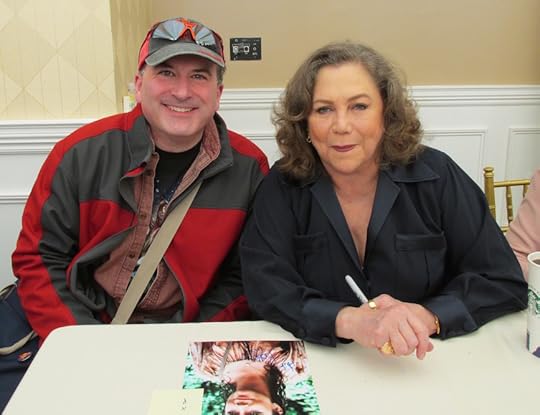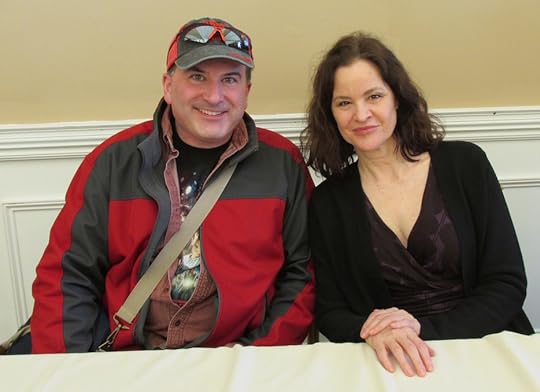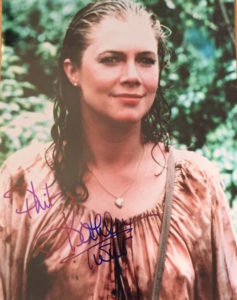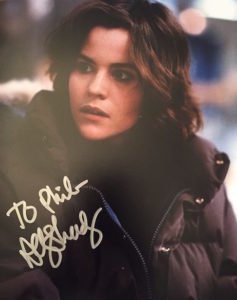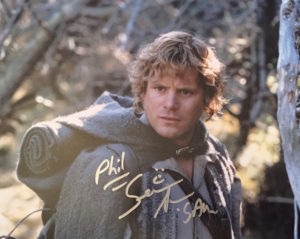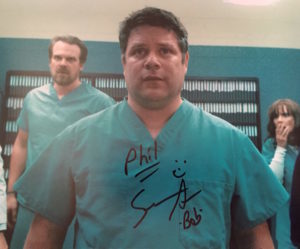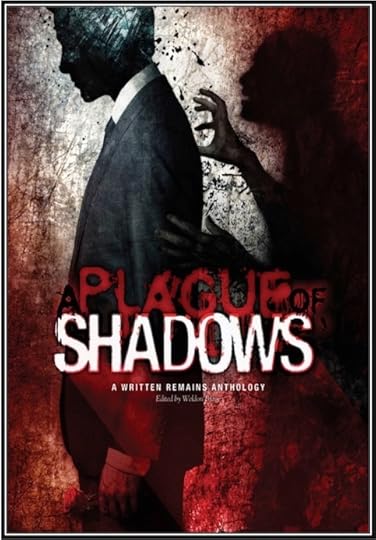Phil Giunta's Blog, page 44
April 28, 2018
Book Review: The Dunwich Horror by H.P. Lovecraft
This anthology of seven eerie, suspenseful tales by the legendary H.P. Lovecraft includes three that involve his famous mythology of the Ancient Ones—especially the monstrous entity, Yog-Sothoth—as well as the grimoire of black magic known as the Necronomicon. 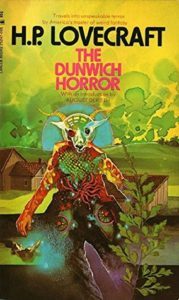
“In the Vault” – After finding himself locked in a tomb, a despicable, cantankerous undertaker successfully escapes by stacking six occupied coffins to create a platform, allowing him to reach a small opening above the door. However, just before crawling free, his leg punches through the lid of the top coffin, leaving him with wounds that were not merely inflicted by jagged wood…
“Pickman’s Model” – An artist of the macabre develops a new and startlingly realistic style when he begins painting demonic figures too grotesque to be displayed in public… but where did he find this latest inspiration?
“The Rats in the Walls” – After restoring the cursed, ruined estate of his ancestors, a young man begins hearing rats scurrying in the walls. An exploration of the cellar reveals an opening to a large chamber, the contents of which reveal the true and terrible history of the property.
“The Music of Erich Zann” – Each night, on the top floor of an apartment building, an elderly violinist plays a haunting, otherworldly melody… and receives a response from somewhere beyond our dimension.
“The Haunter of the Dark” – Robert Blake takes an unhealthy interest in the ruins of a long-abandoned Gothic church whose distant spires are visible from his apartment window. After venturing across town, Blake learns that local residents fear the church and do not speak of it. Undaunted, Blake presses on and finds a way inside. While exploring the ruins, he encounters an artifact that offers him frightening visions of the Ancient Ones—one of which is soon unleashed.
“The Dunwich Horror” – In the isolated, backwoods village of Dunwich, Massachusetts, the primitive Whateley family welcomes a grandson named Wilbur, born of Lavinia and an unnamed father who is believed to be the ancient creature known as Yog-Sototh. Other villagers become fearful of Wilbur’s rapid physical development and inhuman countenance—not to mention the strange growling and rumbling from the surrounding hills that began after his birth. Following Lavinia’s unexplained death, Wilbur and his grandfather begin boarding up the windows of their home as if to imprison something inside. After the deaths of Old Man Whateley, then of Wilbur, the invisible creature bursts from its confinement to wreak havoc on the village. Three professors from nearby Miskatonic University undertake a mission to destroy the creature using the Necronomicon, the grimoire of black magic that initially spawned the beast.
“The Thing on the Doorstep” – Edward Derby, an intelligent, but weak-willed young man with an interest in the macabre, marries a homely, eccentric woman named Asenath who is reputed to have a beguiling affect on others. It is claimed by some that once captured by her stare, they found themselves gazing upon their own bodies through Asenath’s eyes. It isn’t long before Derby undergoes a bizarre and dangerous change of demeanor…
April 25, 2018
Exhausted, But Still Here…
Howdy, folks. Hope all is well on your end of the galaxy. I haven’t been as active on the blog this month for several reasons, some good, some not.
Over the past few months, I’ve been working six—sometimes seven—days a week at my FT job while trying to balance health, writing, and home responsibilities. As you might imagine, this led to exhaustion. Exhaustion then escalated to burnout. Burnout exacerbated depression. The results were not pleasant… and it ain’t over yet. At least two more long weeks are on tap for May.
In between all of that, I managed to record a short video that will accompany the upcoming Kickstarter campaign to publish my paranormal novella, Like Mother, Like Daughters, starring Miranda Lorensen, my single mom, psychic-medium, paranormal investigator featured in my first two novels. I’ve been discussing this book quite a bit here on the blog. Look for the Kickstarter to launch in the next month or two.
I’ve also been reworking the first draft of a science fiction novel that has been in progress since 2016. It’s the most challenging and research-intensive story I’ve ever written. I’m well outside my comfort zone, dealing with everything from spaceship propulsion, exoplanets, wormhole theory, exotic matter, and more while also creating a future Earth that is on the brink of dystopia.
Next month, I’ll be recording another Kickstarter video—this one for volume three of my Middle of Eternity speculative fiction anthology series that began in 2014 with Somewhere in the Middle of Eternity and continued in 2016 with Elsewhere in the Middle of Eternity. The third installment will be titled Meanwhile in the Middle of Eternity. Most of the contributing authors from books one and two will return, to be joined by six new voices, all offering yet more imaginative tales of SF, fantasy, and the paranormal. More details coming soon!
For now, I leave you with Snoopy, confronting a problem faced by every writer!
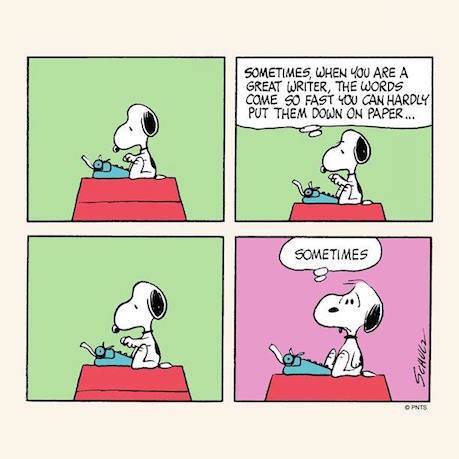
April 16, 2018
Book Review: Farnham’s Freehold by Robert A. Heinlein
It is the early 1960s and the United States is on the verge of nuclear 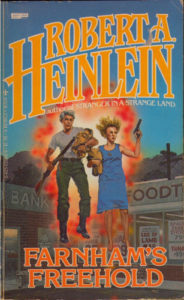 war. To prepare for this, Hugh Farnham constructed a fully stocked bomb shelter beneath his house years before. On a night when Hugh’s daughter, Karen, invites her friend Barbara to the house, the local radio station in their Midwestern town begins transmitting warnings of a possible nuclear strike. Hugh’s son, Duke, is skeptical that either side would commit such an act of suicide. He considers the bomb shelter an overreaction on the part of his father—until the radio station issues its first bomb warning during a round of bridge (a game that features prominently throughout the story).
war. To prepare for this, Hugh Farnham constructed a fully stocked bomb shelter beneath his house years before. On a night when Hugh’s daughter, Karen, invites her friend Barbara to the house, the local radio station in their Midwestern town begins transmitting warnings of a possible nuclear strike. Hugh’s son, Duke, is skeptical that either side would commit such an act of suicide. He considers the bomb shelter an overreaction on the part of his father—until the radio station issues its first bomb warning during a round of bridge (a game that features prominently throughout the story).
All hands rush into the shelter where the pragmatic Hugh assumes the role of a supreme commander, giving orders and demanding unswerving obedience as he tries to get the situation—and his alcoholic wife, Grace—under control.
After a series of blasts rock the shelter—resulting in minor injuries to the occupants and superficial damage to the shelter—the family ventures outside expecting to find the radioactive remains of their obliterated neighborhood. Instead, they find themselves surrounded by a serene woodland paradise unblemished by even the slightest mark of humanity. At first, the area is completely unfamiliar, until Hugh, Duke, and the Farnham’s servant, Joe, begin scouting the area and recognize natural landmarks. To complicate their dire survivalist predicament, both Karen and Barbara announce that they are pregnant.
Hugh and Grace’s marriage was disintegrating long before this catastrophe and on a day when Grace decides to leave Hugh and the shelter to strike out on her own (albeit with Duke to protect her), the entire lot are captured by a race of humans in a flying craft unlike any they’ve ever seen and from that moment on, the fate of the Farnhams takes more than one otherworldly turn…
Heinlein spares no details in this well-paced adventure, from the graphic descriptions of births (both human and feline) to a thoroughly developed caste system of a future Earth that is at once fascinating (reverse-racism, adherence to a diluted form of Islam) and disturbing (benevolent dictatorship, cannibalism, female servants labeled—and used as—sluts or “bedwarmers”).
Although Farnham’s Freehold sparks much debate among hardcore Heinlein fans and general SF readers alike for its political and sociological views, it was not my favorite of Heinlein’s works by far. The story itself did not appeal to me and sometimes I find Heinlein’s portrayal of his female leads to be doltish, naive, or unrealistic and nowhere was this was more evident than in the character of Barbara.
April 9, 2018
Psychics and Ghosts and Vampires… Oh My!
I glanced at the calendar in the left sidebar of my website today and realized I had not yet written a blog post in April—but not without good reasons.
Near the end of March, I drafted project plans for the next two books I’m releasing with writer pal Steven H. Wilson through his publishing imprint, Firebringer Press. Both of these books will, hopefully, be crowdfunded via Kickstarter.
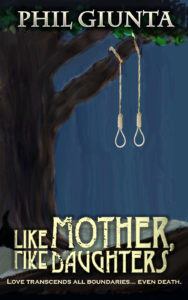 First up will be a paranormal mystery novella, Like Mother, Like Daughters starring Miranda Lorensen, paranormal investigator, psychic medium, and single mom from my novels Testing the Prisoner and By Your Side. This time, she’s bringing her daughter…
First up will be a paranormal mystery novella, Like Mother, Like Daughters starring Miranda Lorensen, paranormal investigator, psychic medium, and single mom from my novels Testing the Prisoner and By Your Side. This time, she’s bringing her daughter…
After Andrea Lorensen’s lover is found murdered during a paranormal investigation, she is determined to find the killer—with some help from her lover’s ghost. Meanwhile, her mother Miranda travels to Salem, Massachusetts where she reunites with the spirit of a teenage girl executed for witchcraft in 1692. This time, however, the encounter reveals an astonishing truth about Miranda’s past life—a truth that could kill her.
Like Mother, Like Daughters will be paired up with Steve’s vampire novella, Freedom’s Blood…
You’re a vampire, but you have an unyielding belief in the sanctity of the individual’s rights. How do you survive, if you can’t take blood without permission? And what do you do when someone offers you his blood… with strings attached? This humorous tale explores the ethics of being a vampire—or even just a creature that’s gotta eat—against the background of a developing America. Starting out in Colonial Maryland and carrying on through the 21st Century, “Freedom’s Blood” will perhaps amuse, perhaps enrage, and will certainly introduce you to a vampire like none you’ve ever encountered.
We intend to release the book in the format of the old ACE Doubles where you read one story, flip the book over, then read the other.
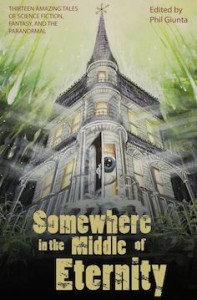 After we recover from that, Steve and I will produce the third volume in our Middle of Eternity speculative fiction anthology series that began in 2014 with Somewhere in the Middle of Eternity and continued in 2016 with Elsewhere in the Middle of Eternity. Almost all of the stories and interior illustrations for book three are finished and the cover art is in progress.
After we recover from that, Steve and I will produce the third volume in our Middle of Eternity speculative fiction anthology series that began in 2014 with Somewhere in the Middle of Eternity and continued in 2016 with Elsewhere in the Middle of Eternity. Almost all of the stories and interior illustrations for book three are finished and the cover art is in progress.
In addition to our returning writers Steven H. Wilson, Stuart S. Roth, Susanna Reilly, Michael Critzer, Lance Woods, April Welles and myself, we will be joined by Julie Fedon, Christopher Ochs, Bart Palamaro, Sean Druelinger, and Peter Ong.
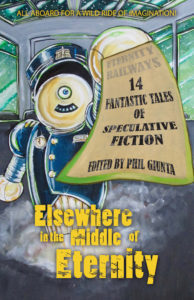 To take the pressure off of artist Mike Riehl, who not only produced the covers to the previous volumes but all of the interior illustrations, we brought aboard artists Laura Inglis and Tim Marrron. It should be noted that both Julie Fedon and Christopher Ochs illustrated their own stories.
To take the pressure off of artist Mike Riehl, who not only produced the covers to the previous volumes but all of the interior illustrations, we brought aboard artists Laura Inglis and Tim Marrron. It should be noted that both Julie Fedon and Christopher Ochs illustrated their own stories.
Look for more details about both books in the coming months!
March 30, 2018
Book Review: Robert A. Heinlein’s Assignment in Eternity
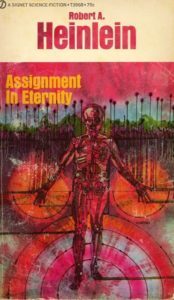 Arguably some of Heinlein’s best short fiction, Assignment in Eternity offers four fantastic tales including:
Arguably some of Heinlein’s best short fiction, Assignment in Eternity offers four fantastic tales including:
“Gulf” – A secret agent named Gilead is rescued from captivity by a clandestine organization of highly trained supermen and women. Although they seem nefarious at first, Gilead soon realizes that they are, in fact, noble and agrees to join them. After being trained in their ways, he undertakes a mission to stop a weapon of mass destruction.
“Elsewhen” – A university professor engages five students in an experiment to travel to across space and time merely by the power of hypnotism, opening portals to strange and distant worlds, one of which is engulfed in war with an alien race while the other is a serene paradise of godlike beings.
“Lost Legacy” – A physician, a psychologist, and a parapsychologist manage to tap into their latent abilities of clairvoyance, telepathy, levitation, and telekinesis. Soon after, they find themselves drawn to Mount Shasta in Northern California where they encounter a group of mystics who have long ago mastered such abilities and are waiting for the right opportunity to reveal themselves to the world in the hopes of setting humanity on a path to enlightenment. First, they must overcome evil forces as ancient and powerful as they, forces who wish to keep humanity ignorant and servile.
“Jerry was a Man” – A wealthy couple visits a genetic engineering firm where animals of almost any configuration can be manufactured. During a tour, the wife encounters a polite, elderly ape named Jerry who can speak, but is on death row as he has outlived his usefulness. She is appalled and demands to adopt Jerry, against the company’s policy. The situation escalates to a court hearing for the purpose of determining whether Jerry is entitled to the same rights as humans.
March 28, 2018
About This Writing Stuff…
This week, Jami Gold explains the role of a line editor while K.M. Weiland cautions us about using coincidence in our fiction. Gill Andrews offers advice to improve your author website (I made some minor changes to this site as soon as I read his article!).
After nine novels, soon ten, Jeff VanderMeer shares eight insights into the writing process. Over at Mythcreants, Oren Ashkenazi analyzes Kurt Vonnegut’s Eight Rules of Writing and presents common pitfalls of deep story ideas.
All that and a little more… Enjoy!
How Useful are Kurt Vonnegut’s Eight Rules of Writing? and Five Common Pitfalls for Stories with Deep Ideas by Oren Ashkenazi
Inhabiting Our Scenes: Information Versus Experience by Peter Selgin
8 Writing Tips from Jeff VanderMeer via Chicago Review of Books
Want More Readers for Your Blog and Books? Fix These 5 Website Mistakes by Gill Andrews via Anne R. Allen
Zoom In, Zoom Out: An Exercise in Creating a Memorable Setting by Steven Cooper
How Long Should a Book Be? Word Count Guidelines by Anne R. Allen
Coincidences in Fiction: What You’re Doing Wrong by K.M. Weiland
What is Line Editing and What Should Line Editors Do? by Jami Gold
Complete Fiction: Why the ‘Short Story Renaissance’ is a Myth by Chris Power
This will be the last edition of About this Writing Stuff for the next six to eight weeks (at least). Over the next few months, I shall be busy prepping not one, but two new books for release while projects at my full time job threaten to consume much of my personal time. On top of all this, I have the first draft of a science fiction novel in progress that I am determined to finish this year. I’m treading water and the tide is rising. Hey, two clichés in one sentence. Go me!
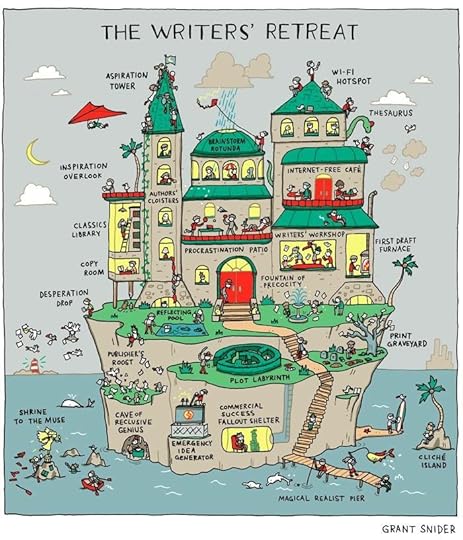
March 20, 2018
Kickstarting A PLAGUE OF SHADOWS
I’m excited to announce the launch of the Kickstarter campaign for A PLAGUE OF SHADOWS, an upcoming paranormal fiction anthology from Smart Rhino Publications.
My short story “Bottom of the Hour” will be included in this collection and I’m honored to be joining such an august body of writers including Jane Miller, Maria Masington, Billie Sue Mosiman, Carson Buckingham, Greg Smith, Graham Masterton, Patrick Derrickson, Jeff Strand, Joanne M Reinbold, Jacob Jones-Goldstein, Gail Husch, Jasper E. Bark, Shannon Connor Winward, Jeff Markowitz, Patrick Conlon, Jennifer Loring, Justynn Tyme, Weldon Burge, Stephanie M. Wytovich, and more.
Our funding goal is modest and the various reward levels are fantastic. I hope you’ll take the time to explore our Kickstarter at the link above or click on the cover image below. We appreciate your support of small press authors!
March 16, 2018
Book Review: The Best Short Stories of the Modern Age selected by Douglas Angus
This superb collection of 20 stories gathers the work of such legends as Edgar Allan Poe, Ernest Hemingway, Shirley Jackson, Jean Paul Sartre, Franz Kafka, William Faulkner, James Joyce, D.H. Lawrence, Anton Chekhov, and more. I’d read about half of these stories in years past and was delighted to find just how much detail remained with me. My favorites included
“The Tell-Tale Heart” by Edgar Allan Poe – A deranged killer, sickened by an elderly man’s bulging eye, murders the man in the middle of the night and buries the body under the floorboards. He considers it a perfect crime, even when the police arrive, until he hears a ringing in his ears, which turns into a ticking, then a heartbeat…
“The Jewels” by Guy de Maupassant – A young clerk becomes annoyed at his wife’s penchant for collecting costume jewelry. When she passes away, he eventually takes to them to a jeweler for an appraisal…
“A Clean, Well-Lighted Place” by Ernest Hemingway – A lonely man refuses to leave the outdoor cafe he frequents—to the chagrin of one young exhausted waiter, but his coworker understands that there are those, desolate and unloved, who need a clean, well-lit place…
“The Rocking Horse Winner” by D.H. Lawrence – A young boy flawlessly predicts the winners of horse races by rocking on his hobby horse, but each time he must exert more effort until…
“The Devil and Daniel Webster” by Stephen Vincent Benét – A hapless farmer strikes a deal with the devil, but when it comes time to pay up, he reaches out to legendary farmer, lawyer, and patriot Daniel Webster to save his soul.
“A Rose for Emily” by William Faulkner – An reclusive elderly woman, once popular in the town and a source of gossip, passes away, leaving behind a grisly revelation.
“The Lottery” by Shirley Jackson – A small town, steeped in tradition, holds an annual lottery, but the winner is far from lucky.
“The Metamorphosis” by Franz Kafka – A young traveling salesman awakens one morning to find himself transformed into a giant cockroach.
“The Ledge” by Lawrence Sargent Hall – A fisherman and two boys venture out to a small island for Christmas morning for a day of duck hunting—until they find themselves stranded as high tide rushes in.
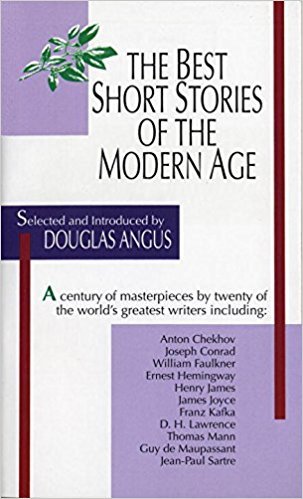
March 15, 2018
About This Writing Stuff…
This week, Anna Elliott offers three tips for “kicking your readers right in the feels” while Chris Winkle and Damon Suede explore various facets of character. Peter Selgin boils fiction down to two plot types and explains how to introduce foreshadowing in your story’s opening.
Juliet Marillier defines the fantasy genre, Blake Morrison delves into the often distressing burden of managing a deceased writer’s estate, and Olivia Mason presents a top-ten list of best works from one of my all-time favorite writers, Harlan Ellison.
All that and a little more… Enjoy!
3 Tips to Hook Your Reader’s Emotions by Anna Elliott
What Is Fantasy, Exactly? by Juliet Marillier
Take Cover! by John Gilstrap
The Six Traits of Strong Characters by Chris Winkle
Characters: More Than Just Imaginary People by Damon Suede via Jami Gold
How Works of Fiction Can Be Boiled Down to Two Types of Plots and How Your Story Opening Foreshadows What’s to Come by Peter Selgin
Up in Smoke: Should an Author’s Dying Wishes Be Obeyed? by Blake Morrison
The Best of the Best: 10 Must-Read Works by Harlan Ellison by Olivia Mason
Scam Down Under: Love of Books Brisbane / Julie “Jules” McGregor by Victoria Strauss for Writer Beware

March 10, 2018
After Action Report: Monster Mania 39
Back from yet another Monster Mania Horror Convention and Autograph Show in Cherry Hill, NJ. My wife and I have been attending Monster Mania’s semi-annual cons for many years. We watched it grow from a small horror convention with a few guests to an extravaganza with several major headliners.
This year included Tim Curry, John Carpenter, Sean Astin, Joe Pantoliano, Kathleen Turner, Ally Sheedy, Richard Dreyfuss, and many more. Since I’d seen Richard Dreyfuss and Joe Pantoliano before–and was not about to deal with the lines for Tim Curry or John Carpenter–I focused on Sean Astin (Lord of the Rings, Goonies, Stranger Things 2, etc.), Kathleen Turner (Romancing the Stone, Jewel of there Nile, Peggy Sue Got Married, etc.), and Ally Sheedy (St. Elmo’s Fire, The Breakfast Club, Short Circuit, etc.).
While I was able to have my photo taken with Ally Sheedy and Kathleen Turner, there were no photos allowed with Sean Astin at his autograph table. Nevertheless, all three stars were wonderful to the fans, taking the time to chat and even give hugs! All told, it was a fantastic day despite the intense crowd, one of the largest in the convention’s history. It probably rivaled the March 2017 con, when John Cusack and Kate Beckinsale were the headliners.
